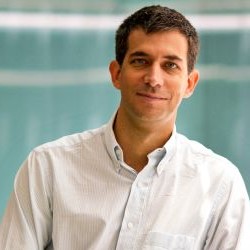
It is essential for undergraduates to build a solid foundation in their studies to help them navigate the changing world they will graduate into. Whether it’s understanding human behaviour in a pandemic, leveraging upon the power of data for sound decision-making, or learning how to advocate for ourselves and others in the midst of a crisis, the study of social sciences provides insights into human interaction and communication, and new strategies for navigating issues ranging from business innovation and public health to government response.
As SMU School of Social Sciences (SOSS) Associate Dean (Curriculum and Teaching) and Associate Professor of Sociology Ijlal Naqvi says: “Covid forced the recognition of many issues which were always present but not necessarily top of mind for political and business leaders.”
For example, social disparities such as inequalities in healthcare need to be urgently addressed, since an individual’s health is dependent on the health of an entire community during a pandemic, explains Prof Naqvi. Inequality — as well as other pertinent issues such as citizenship, migration, and inclusion — are also all key topics in social sciences whose salience has been brought to the fore, he adds.
The SMU Bachelor of Social Science (BSocSc) in Political Science, Psychology, and Sociology (PPS) can equip you with the skills to succeed in this ever-changing world. Social science students are ready to make carefully researched arguments, present them effectively, and defend them from intelligent challenges. These are skills that will always be in high demand.
Perfect for anyone who seeks a diverse degree that will allow students the flexibility to direct their career growth in a variety of industries upon graduation, the BSocSc will deliver not just an excellent background in the social sciences, but also knowledge on how different disciplines work together to solve problems and tackle issues facing society today.
Whether you’re looking to work for a government ministry or statutory boards; in a range of traditional business areas (marketing, communications, recruiting); sustainability and social entrepreneurship; or even in tech, such as by bridging business and software development as a product manager for a startup; SMU’s SOSS degree programme could be the perfect launchpad into your dream career.
 SOSS Assoc Dean (Curriculum & Teaching) and Assoc Prof of Sociology Ijlal Naqvi
SOSS Assoc Dean (Curriculum & Teaching) and Assoc Prof of Sociology Ijlal NaqviFlexibility and versatility
Choosing a university programme can be tough. But if you’re interested in a variety of career paths, a social science degree is a great option as it offers a breadth of knowledge to ensure that graduates are well-prepared for a range of careers.
The most popular career pathways are in the corporate and public sectors, shares Prof Naqvi, with about 80 per cent of graduates joining multi-national companies or the civil service.
“These will probably stay at the top of the list, but the exact roles are changing, and I see a greater prominence of technology and sustainability in their responsibilities,” says Prof Naqvi.
“In the corporate sector, there are more jobs that need to take environmental, social, and governance factors seriously. These topics are fundamental to social science, because we are always pushing students to consider ‘what is this a case of’ and connecting individual experiences to larger societal structures and trends.”
An analyst role in a variety of capacities is also a common career pathway for social science grads, as their ability to work with qualitative and quantitative data bridges technical and business concerns with a sensitivity towards the big picture.
 Harresh Krishnan
Harresh KrishnanHaving graduated in 2017, BSocSc alumnus Harresh Krishnan was a Tech Recruiter for companies such as Google, before his current role as a Talent Partner for cloud communications platform Twilio. Before enrolling in SMU, however, he had intended to work in the aviation industry, having graduated from Temasek Polytechnic with a Diploma in Aviation Management and Services.
“That slowly changed as I went through the programme and got a chance to broaden my horizons in the classroom, on overseas business study trips as well as interacting with various teammates and alumni in the rugby fraternity,” recalls Harresh, who was a National rugby player.
“I knew my strength lies with people and here I am today, hiring and giving folks new opportunities.”
Another 2017 graduate, Alana Goh, is currently a product manager at Electric8, which specialises in building and scaling digital businesses. Typically, she works with South-East Asian-based clients to discover the right problem to solve with tech, or scale existing products that they have.
Her day-to-day role includes identifying and prioritising user problems and problem-solving with the team of product designers and software engineers.
“Prior to joining SMU, I did not have a specific path in mind and wanted to see where my interests lie,” admits Alana.
“Initially, I was drawn to human resources (HR) roles. I did internships stints to get acquainted with HR, but as I spoke to more people, I became interested in tech startups. It’s interesting how tech has so much potential to solve social problems by lowering barriers to entry or lowering the cost of distribution to increase access to products and services.”
Putting the social sciences to work
A unique aspect of the SMU Bachelor of Social Sciences programme is that it, according to Prof Naqvi, “is very practically oriented and tends to draw students who are keen to prep themselves for working life.” All SMU undergraduates enjoy the flexibility of taking a second major at any of SMU’s six schools, expanding the range of the specialisations they can select. Prof. Naqvi adds that many students see the social sciences as giving them strong fundamentals in analytical, reasoning, and writing skills, and build on this with a more applied second major to help their positioning on the job market. The social sciences train generalists with transferable skills rather than preparing students for their first job.
“As one of the smallest schools in SMU, having access to the entire university is a great asset to us, but our small size also lends itself well to building a supportive community where students and faculty can get to know each other,” elaborates Prof Naqvi.
Harresh, for one, notes that having a strong research- and writing-based Sociology major coupled with mandatory business and economics modules made him realise how being “a jack of all trades and master of some” has provided him with an edge in a disrupted economy. The Sociology major, in particular, taught him to be more data-driven in decision making, while modules like Research Methods, Statistics and even Understanding Societies allowed him to harness and analyse data to his advantage at work.
As Prof Naqvi elucidates, the programme is built from the ground up to enable student choice through a very modular degree structure. SOSS students enjoy access to courses from across the entire university without GPA requirements or gatekeepers, allowing them to truly explore areas of their interest and tailor their education.
Likewise, Alana still taps upon the competencies developed during her Sociology studies in her line of work, as she constantly needs to consider the rationale and consequences behind certain decisions, and whether they are well-supported by data or reasoning. Otherwise, it would be a costly endeavour in terms of the time and effort required to build a product feature that does not meet the needs of the end user.
 Alana Goh
Alana Goh
“Sociology requires you to adopt the lens of different schools of thinkers to look at the same issue.”
“Sociology requires you to adopt the lens of different schools of thinkers to look at the same issue. The rigour of my major has shaped me into being adaptable, coachable, and more empathetic,” says Alana.
“These traits are essential in today’s economy as technology moves so quickly that we need to be able to unlearn what we’ve learnt in the past and keep up with the change.”